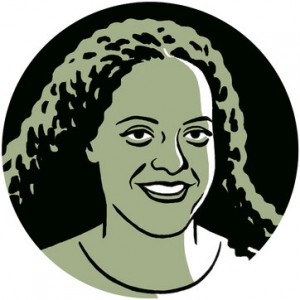Some people are so religiously devoted to a method of reading that we may properly call them Methodists. Others feel the text should be all things to all men, which is good politics but bad for criticism. For if every interpretation is welcomed open-armed, then little room is left for pressing one reading against any another.Lolita may then be read as a spiritual allegory, a
policy solution, or anything else in between with equal justification. Two agnostics at The New York Times, Adam Kirsch and Anna Holmes, debate the matter. Ultimately, both invoke the impenetrable defense: Its subjective! Where do they differ? On Virgil, Kirsch writes:
One thing he surely did not think he was writing was a fortunetelling guide. But soon enough, readers began to use the poem to perform the sortes Virgilianae, or Virgilian lots, in which you would think of a question and then select a verse at random to
answer it. Using the Aeneid as a kind of oracle remained popular for a very long time: The emperor Hadrian did it in the second century A.D., and King Charles I was still doing it 1,500 years later.
Here, if anywhere, is surely an example of reading a book the wrong way.
Centuries ahead, Mrs. Holmes opines:
As for reading portions of a narrative out of order, some books are obviously meant to be consumed this way
(collections of essays and poetry; reference books and anthologies) or, at the very least, manage to dispense with the very idea of a beginning and an end. Skipping or skimming parts of a narrative should not only be expected but encouraged, particularly if an author is writing without clarity or purpose or showing off. Lifes too short to slog through some smarty-pants attempt to demonstrate a mastery of mechanical engineering or botany.
Advice that would make it difficult to learn either mechanical engineering or botany: Or am I just reading her unjustly? Says who? Blunt surface reading can lapse just as easily into prating interpretation, and it is not clear which is the worse. Ideally, close reading will show the work of literature as standing in tension with itself. It is the task of the critic then to tilt the lenticular, showing the immense implications that subtle differences in meaning can have. Is it “April is the cruelest month,” or “April is the cruelest month”? Or December?
Read the debate at The New York Times



2 Comments
Yanni posted on October 2, 2016 at 4:16 pm
What is the purpose of writing a persuasive book? An author needs to develop a certain theory or idea or belief to write a book. If that author hadn’t gone through this very important process, s/he would have written the book much sooner in his/her life, or perhaps wouldn’t have written it at all since it seemed too mundane. That being said, I wonder what an author 20 years prior would say if given the book s/he wrote 20 years later. Would s/he concur 100% with it? No! But could s/he empathize or agree with some of the points? Perhaps! It’s definitely even likely in certain scenarios. Therefore there certainly are different interpretations to books, and different ways people can enjoy, or agree/disagree with a topic. There can’t be one way to read a book and an author knows this when s/he sits down to write the book. Then again, one could read a book in a certain manner that would defeat the author’s purpose or reasoning. So yes, there are many different ways to read a book, some of them being wrong ways!
Anto posted on October 3, 2016 at 4:11 pm
I think it is improbable for the reader to read the book the way the writer intended for it to be read. If it happens, it might be a matter of circumstance and chance. I guess learning how to read is learning how to give different reads to one single text.